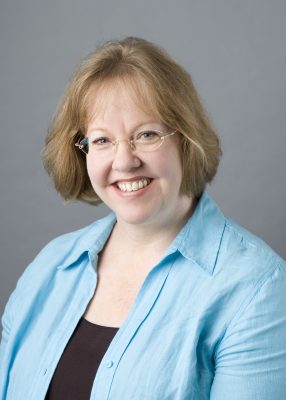May 27, 2020
When the pandemic temporarily shuttered the region’s museums, History Professor Catherine Stewart knew she had to move fast to keep her Public Memory and Public History class relevant.
She quickly called on her personal and professional networks to bring expertise from museums around the country to students in her Block 8 course, which met for 18 days over 3 ½ weeks in April and May.
Junior Fiona Dwyer said the course actually was more expansive as an online offering.
“As much as I miss life on campus and having classes in person, this class expanded and grew because of remote, digital learning,” said Dwyer, of Indianapolis, Indiana. “Due to the course being moved online, it spanned the entire country. We had weekly Zoom calls with experts all across the U.S., we watched tour videos of all sorts of museums and memorials, and we explored online exhibits.”

Professor Stewart discovered that Monticello, the home of Thomas Jefferson, was offering free live virtual tours for educators while the site is closed to the public. She engaged a guide to focus on Sally Hemings and slavery at Monticello to fit with the course’s emphasis on African American history.
After that, she used her network to recreate a course that kept the component of field trips through virtual Zoom tours while also giving students the opportunity to learn directly from public history professionals.
“I came to the realization that virtual learning makes geographical distance meaningless, and that inspired me to think about how I might turn the limitations that came from teaching online into opportunities,” Stewart said. “I realized that I could ask experts in the field, regardless of their location, to join my class and take my students on a personal, virtual tour of a historic site or archive.”
Other course experts included:
- The coauthor of “Civil Rights Memorials and the Geography of Memory”
- A UCLA professor and creator of the computer simulation model of the 1893 World’s Columbian Exposition in Chicago
- A reference librarian from the Prints and Photographs Division of the Library of Congress in Washington, D.C.
- The curator of Genealogy and Local History at the Newberry Library in Chicago
- The cocreator of ATLmaps.org and “Counter-mapping (Post-)Incarceration: Narratives,” a community-driven, open-access platform using historical maps that enables users to stack digital layers of content to create their own story-projects

The reference librarian at the Library of Congress, personally instructed the students on how to conduct online research using the Library’s vast collections and showed them some special artifacts related to the students’ research topics. For their final project, the students formed small groups to create online exhibits on current issues in public history, including documenting the impact of COVID-19, and examining the recent controversy over the Works Progress Administration “Life of Washington” murals in a San Francisco high school.
“This course felt relevant,” Dwyer said. “The vast majority of the world is seeking a blueprint for how our world will operate after the pandemic subsides. I’m wondering what my life in the workforce will be like, what my relationship with my city will be like, and how I’ll pay homage to this time in my life while still moving forward. This class studied the memory of all sorts of times in history that may be easier to forget but deserve to be remembered.”
Dwyer worked with classmates Elizabeth Byland and David Navarro on the National Archives controversy over the altered photograph of the Women’s March that was featured in their exhibit on the women’s suffrage movement, “Rightfully Hers.” Their project, “To Be Silenced: The National Archives and Records Administration’s Censorship of the Women’s Movement and its Legacy,” is available to view online.
Dwyer said completing the course in 18 days was helpful.
“For both digital blocks, it was so helpful to just have one class to keep track of,” she said.
"course" - Google News
May 28, 2020 at 02:01AM
https://ift.tt/2XEi6LV
Online history course features numerous national experts - Cornell College News
"course" - Google News
https://ift.tt/35q9ps5
https://ift.tt/35rCFi1
Bagikan Berita Ini














0 Response to "Online history course features numerous national experts - Cornell College News"
Post a Comment